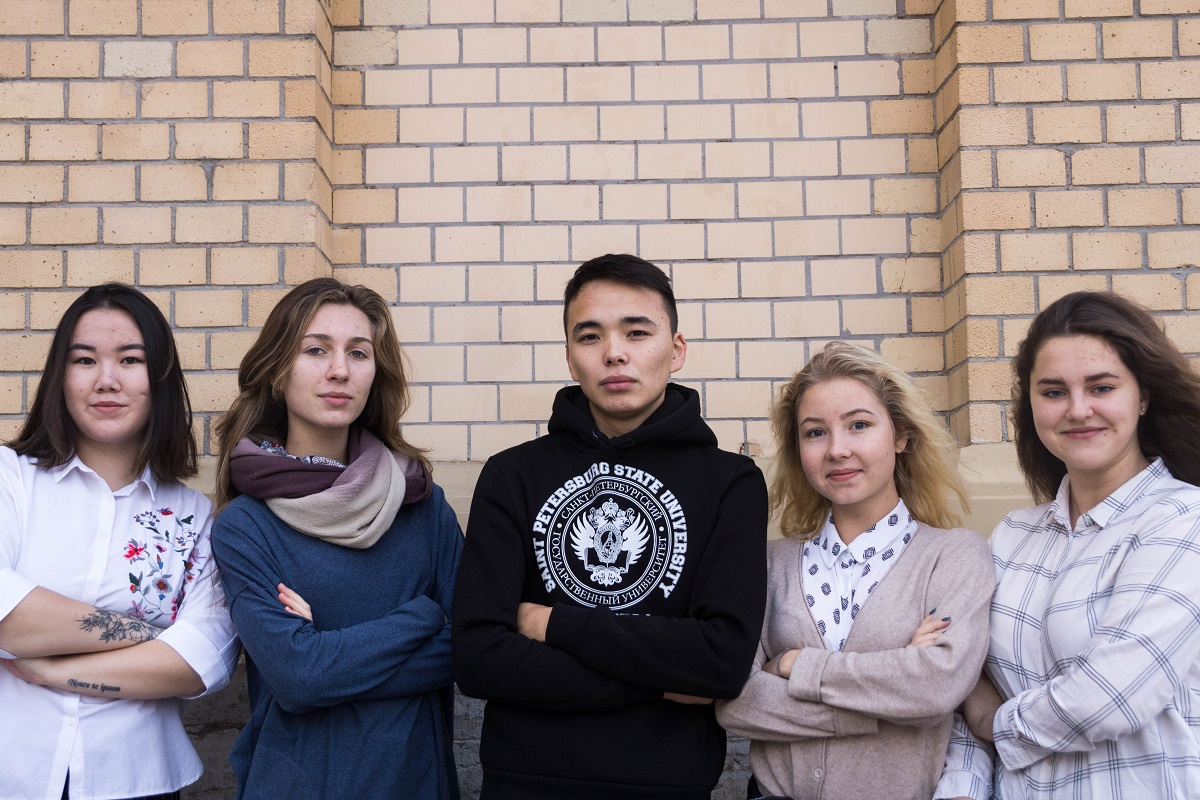St Petersburg University students find a way to transfer corporate training to a Virtual Environment

Participants in the Start-Up 2019 competition, the Make VR Team, have devised an educational kit in virtual reality, with which companies will be able to boost the knowledge and cultivate the skills of their personnel more quickly and effectively. The designers figure that this will cut training expenses by at least 20-30 percent and allow them to create lessons themselves from scratch in just twenty minutes.
According to a poll that the students conducted among several dozen Russian companies, more than 60 percent of them were not completely satisfied with the retraining of their staff when it was carried out in the traditional way.
“The main problems that we heard about were poor assimilation of the material, large expenditures of time and money because people were taken away from their work, and breakdowns in the testing equipment, for example machines that they needed to learn how to use,” recounted Yulia Goldina, the team captain and a first-year Arts and Humanities student “Today, many Russian companies want to switch to e-learning.”
Education by means of virtual reality presupposes a person’s total immersion in a situation that might arise in their profession. For example, in the U.S., thanks to such lessons, bus drivers (who need to be able to rescue people in emergencies) get to know the features of their bus and the location of medical supplies. They are specially illuminated by the programme, and that is how workers learn how to orient themselves in a new environment. For such lessons, all they need are augmented reality glasses and a mobile application, so people in different parts of the country can take the same course simultaneously.
Incidentally, it was in the United States, around a year ago, that the first educational kits for corporate training became available. Such platforms do not usually have a Russian interface and a function for adding 3D-models, which limits the range of their potential users in Russia.
There are no such websites in Russia yet, but there are a handful of companies whose staff are developing virtual reality lessons on their own. Because they do not have an educational kit, in which lessons are created using embedded software, these companies are forced to bring in programmers and designers. As a result, the preparations for the lessons are long and drawn out, and the training is expensive. In addition, it is not possible without special glasses, which range in price from 15,000 to several hundred thousand rubles.
Our platform is automated, which makes it possible to create a lesson in just twenty minutes. On top of that, an app user can take a training course by putting their telephone in even the most inexpensive augmented reality glasses, which cost 200 rubles. And what’s more, companies save a great deal of money, since they have the opportunity to buy lessons only for a specified period of time.
Yulia Goldina, the team captain and a first-year Arts and Humanities student
The budding entrepreneurs have already developed a prototype – a website on which it is possible to download 360-degree photos, audio and video files and, based on them, design simple lessons. At the moment, the students are fulfilling orders on their own, but very soon they are planning to equip the platform with functions for adding 3D-models, and, toward the end of the competition, they want to begin selling subscriptions, thanks to which companies will be able to create lessons without the assistance of experts.
The following students are members of the team: Valeria Derun (Arts and Humanities), who does the web programming, Alla Poletaeva (Sociology), who designed the educational kit, Camille Djakupova (Arts and Humanities), who is responsible for promoting the project, Didar Samserbaev (Oil and Gas Engineering), and Yulia Goldina, (Arts and Humanities), who looks for clients.

